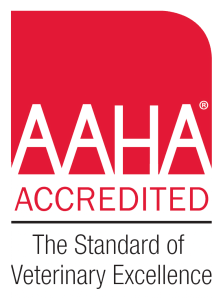Rabbit Hemorrhagic Disease Virus (RHDV2) is a highly contagious fatal calicivirus that was first found in the United States in 2018. Original outbreaks occurred in the Pacific Northwest and Ohio. It has slowly spread throughout the west coast and is moving its way east and throughout the south. The cases can be tracked on the USDA website, and positive cases have now reached Wisconsin.
Signs are generally quick to develop, and most commonly rabbits will be found acutely dead without any other signs within 1-2 days. If they do have signs, they tend to be non-descript (not eating, lethargy, bloody nasal discharge). This virus kills over 90% of infected rabbits. There is no specific treatment for RHDV2 infection. If it is caught early, symptomatic treatment may help patients survive. RDHV2 is extremely contagious. It is most spread through direct contact or contact with infected blood or excretions. It may also spread through carcasses, by way of biting insects, and through contaminated water, food, and fomites, including people. RDHV2 may last over three months in the environment at room temperature and can survive freezing temperatures as well. RHDV2 is a reportable disease, and the state veterinarian will need to be involved if a case is suspected in Wisconsin.
At home, you can practice good biosecurity to protect your rabbits. Since the virus can last on clothes and the environment, it is recommended to keep your rabbit inside if rabbits travel in and out of your yard. Please also keep an eye on your dogs and cats as they can spread it to your rabbit if they come in contact with wild rabbits. We do not recommend traveling across state lines with your rabbits right now and please don’t bring them to shows with other rabbits. Any new rabbits to the house should be quarantined for 30 days to make sure they are not ill. Continue to clean all rabbit supplies well at home, especially if being used with multiple rabbits. A 10% bleach solution is useful in destroying the virus on household objects after they have been cleaned with soap and water. You can find more biosecurity information at the House Rabbit Society website.
RHDV2 vaccine from MedGene labs has been granted emergency use authorization by the FDA and the Wisconsin State Veterinarian after 2 cases were confirmed in a suburb of Minneapolis. Vaccine studies showed the vaccine to be efficacious. The only side effects noted in their study was mild swelling at the injection site which subsided in under 48 hours. Other signs the manufacturer recommends monitoring for include slight fever and mild lethargy of one to two days duration. This vaccine requires two doses, twenty-one days apart to be fully protective. It has been shown to be safe in rabbits as young as 4 weeks of age. This vaccine has been shown to be protective 2 weeks after the second vaccine. The state veterinarian also recommends but does not require, identifying tattoos or microchipping to positively identify vaccinated individuals.
Brook-Falls is able to provide this vaccine for our clients. If we have seen your rabbit for an examination within the past 4 months, you may make an appointment with a technician for the vaccine. Since this is a new vaccine, you will stay with your rabbit in the hospital for 20 minutes after the vaccine to monitor for any immediate allergic reactions. You must be available to come back in 3 weeks for the second vaccine. Both vaccine administration appointments will be made during your initial call to schedule. If your rabbit has not had an examination by one of our veterinarians in the past 4 months, your rabbit will need an appointment with the doctor for an exam and then can receive the first vaccine. The booster vaccines can be given by a technician. An annual booster vaccine will be necessary.
Since this is such a lethal virus for rabbits, we recommend all rabbits be vaccinated for RHDV2. Please contact us to set up an appointment now. This vaccine will also be required for your rabbit to lodge with us in our pet resort. Here is more information from the Wisconsin State Veterinarian on RHDV2.


